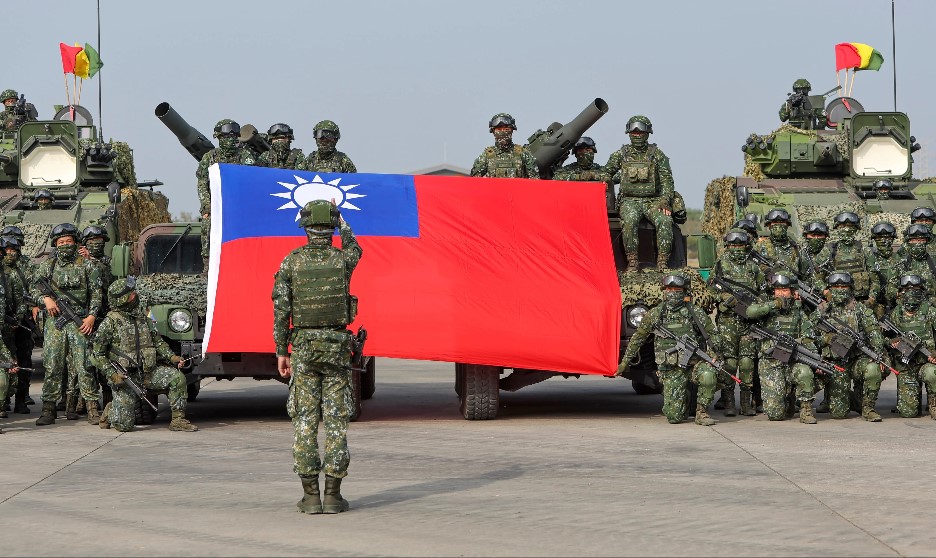Taiwan Vows to Boost Military Spending in Response to China Threat, Rebukes Trump's 'Payment' Demand

Taiwan is set on fortifying its defenses and increasing its military spending amidst the looming threat from China. This determination was underscored by Foreign Minister Lin Chia-lung's recent remarks, following critical comments from former U.S. President Donald Trump. Trump, in an interview, had suggested that Taiwan should financially compensate the U.S. for its defense support, claiming the island nation had benefited from American semiconductor business.
Foreign Minister Lin responded to Trump’s comments by emphasizing Taiwan’s need for self-reliance in defense. "We pay great attention to these remarks," Lin stated during a press conference in Taipei, highlighting the bipartisan support Taiwan enjoys in the United States. He noted that while Taiwan appreciates its relationship with the U.S., the primary responsibility for its defense lies with itself, especially given the persistent threat posed by China.
Taiwan's military spending has seen a significant rise over the past eight years, now accounting for 2.5% of its GDP. Lin projected that this trend will continue as Taiwan faces increasing pressure from China, whose defense budget also continues to grow. Efforts to modernize Taiwan's military are in full swing, with initiatives such as extending conscription from four months to a year and developing indigenous defense technologies, including advanced submarines.
Despite the absence of a formal defense pact with the United States, unlike Japan and South Korea, Taiwan remains a crucial strategic partner for Washington. The U.S. is legally bound to supply Taiwan with the means for its defense, although formal diplomatic ties were severed in 1979 in favor of recognizing Beijing. This unique relationship was further complicated in 2022 when President Joe Biden stated that U.S. forces would defend Taiwan in the event of a Chinese invasion, deviating from the long-held policy of "strategic ambiguity."
Taiwan's strategy, often described as the "porcupine" approach, focuses on developing a defense posture that makes it difficult for China to successfully invade. This involves acquiring and deploying mobile, cost-effective, and resilient asymmetric weapons capable of withstanding an initial assault by China’s significantly larger military. This strategy has been promoted by successive U.S. administrations and embraced by Taiwan’s Democratic Progressive Party since it took office in 2016.
China, which has never renounced the use of force to annex Taiwan, continues to reject offers of dialogue from Taiwan's President Lai Ching-te, labeling him a "separatist." Lin emphasized the importance of not being constrained by China’s centennial goals, which include building a world-class military by 2049, the 100th anniversary of the People’s Republic of China.
"We must be prepared to face a possible Chinese invasion, but we must be united," Lin stated. "We hope that every day when Xi Jinping wakes up, despite his future plans, he decides 'not today'" regarding any potential attack on Taiwan.
Taiwan's steadfast resolve to enhance its military capabilities and readiness underscores its commitment to safeguarding its sovereignty and security amidst an increasingly complex geopolitical landscape.


